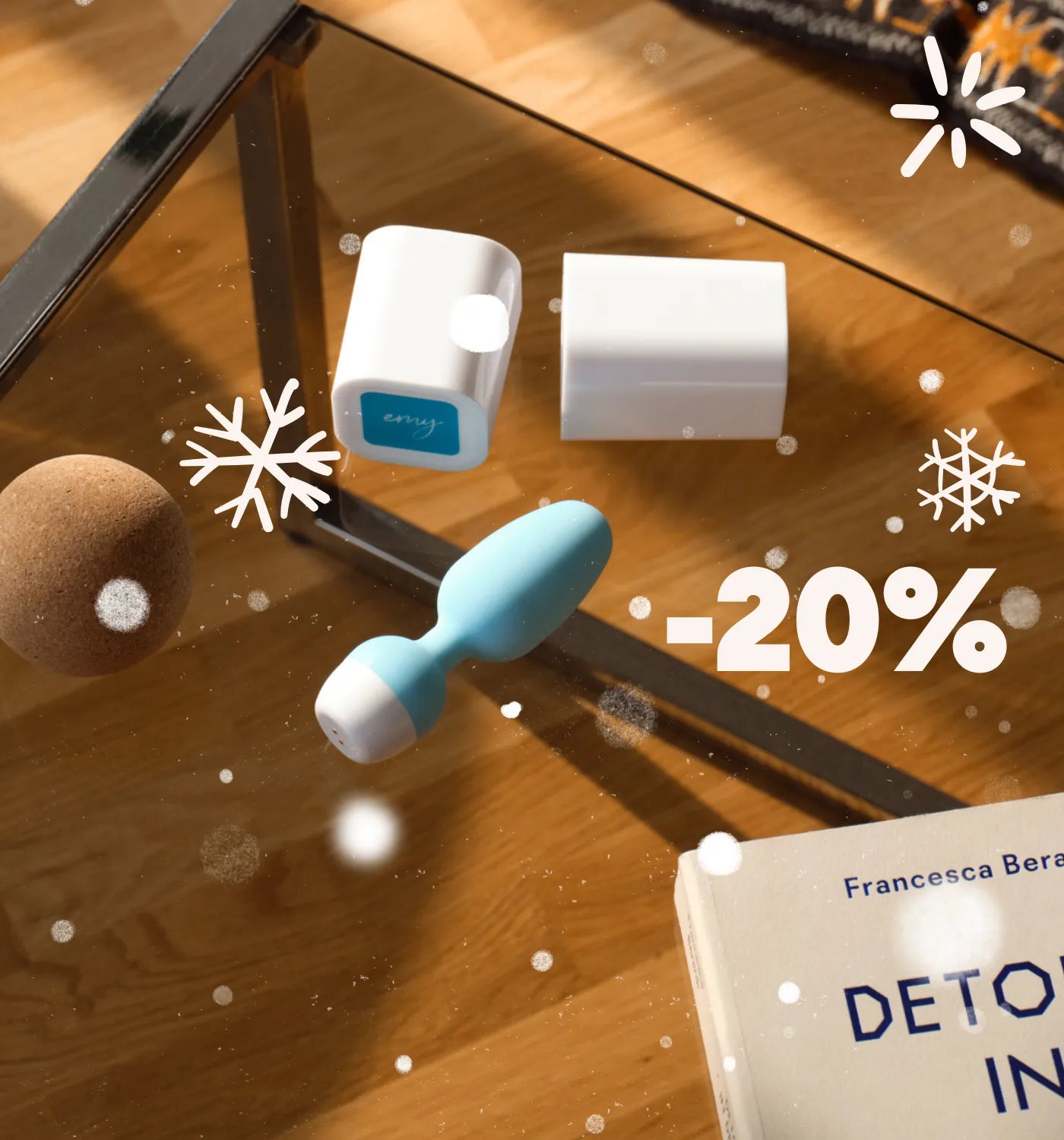Urgent need to go to the toilet, frequent urge to urinate, or even urinary leakage… If you are experiencing these recurring problems, you may have an overactive bladder. But what is it? What are the symptoms and causes of overactive bladder? And most importantly, how can we fix it?
What are the symptoms of overactive bladder?
Let's start with the basics. The bladder is an organ that is made up of several muscles: the detrusor (walls) and the sphincters (responsible for continence). In theory, these muscles only contract when the bladder is full and needs to be emptied.

Normally, the bladder muscle relaxes as it fills. Then the urge to urinate is felt when the bladder is half full. When this feeling arises, most people are then able to hold it in for a period of time. Until the moment of urination.
But in the case of a overactive bladder, the detrusor contracts involuntarily, repeatedly and uncontrolled, for no apparent reason. This is also known as an “irritable bladder” or “sensitive bladder.” Thus, the patient has the impression that his bladder is full long before it actually is. By extension, he also has less control over the contraction of his bladder during urination.

More common in women than men,detrusor hyperactivity usually causes the following symptoms:
- The emergency. The urge to urinate being sudden and urgent, the person must absolutely go to the toilet.
- The frequency of urination. Typically, the individual needs to urinate more than eight times a day.
- Nocturnal urination, nocturia. This involves waking up to go to the toilet at least once during the night.
- Urge incontinence. Some people with overactive bladder may even suffer from urinary leakage (light or more significant).
The cause of an overactive bladder
Most often, the reason for the appearance of an overactive bladder is unknown. We then talk aboutoveractive bladder when no other medical cause seems to explain the symptoms. Urinary infection, diabetes, bladder stones, prostate enlargement…
However, symptoms often worsen during times of stress. Certain substances – such as caffeine, theine and alcohol – also accentuate the problem of overactive bladder.
Additionally, many women experience an overactive bladder during pregnancy. On the one hand, the uterus exerts pressure on the bladder. On the other hand, blood flow increases considerably.

Then, in the weeks following delivery, bladder control can also become complicated. Hence the importance of a good perineal rehabilitation – which we discuss later in the article.
Finally, in other people, the symptoms of overactive bladder are more of a complication of a brain or nervous system disease. Examples: stroke, Parkinson's disease, multiple sclerosis or even spinal cord injury.
How to treat an overactive bladder?
Rest assured, there are several ways to treat an overactive bladder. In addition to drug treatments as a last resort, these natural solutions will help you better understand and control your bladder.
Bladder rehabilitation
First, you can train your bladder. Instead of urinating whenever you feel the need, do it at specific times of the day. These scheduled urination will teach you to control your urge to urinate.

Start by waiting a few minutes before urinating, then gradually increase the duration. In a seated position, contract the muscles of the pelvic floor several times in a row. When the need to urinate subsides, return to your activities.
Be patient: results may take up to 8 weeks.
Pelvic floor exercises
Next, you need to strengthen the muscles that control urination: the pelvic floor. For this, there is nothing like Kegel exercises. It involves contracting and then releasing the perineum according to varied rhythms and intensities.

To support you in your pelvic rehabilitation, you can even use a perineal biofeedback probe. It will help you work the right muscles, the right way.
Learn more about the Emy probe
Which plant to relieve an overactive bladder?
Finally, certain plants rich in antioxidants can also help you calm the symptoms of an overactive bladder :
- Orthosyphon, cranberry, pumpkin seeds. Diuretic effect, better drainage of toxins, reduced risk of urinary infection.
- Yellow nettle, cinnamon, saw palmetto, Ganoderma lucidum (reishi). Better nervous functioning, muscle relaxation.
- Cypress nuts, field horsetail, hops. Vasoconstrictor effect, toning of the detrusor muscle.
- Gosha-jinki-gan, hachi-mi-jio-gan. Regulation of the need to urinate.
These plants are consumed in the form of herbal teas or essential oils, depending on the substance and your medical condition.

Seek medical advice
An overactive bladder can be debilitating on a daily basis. If you are suffering, it is better to consult a healthcare professional. He will then advise you on bladder treatment adapted to your situation.






